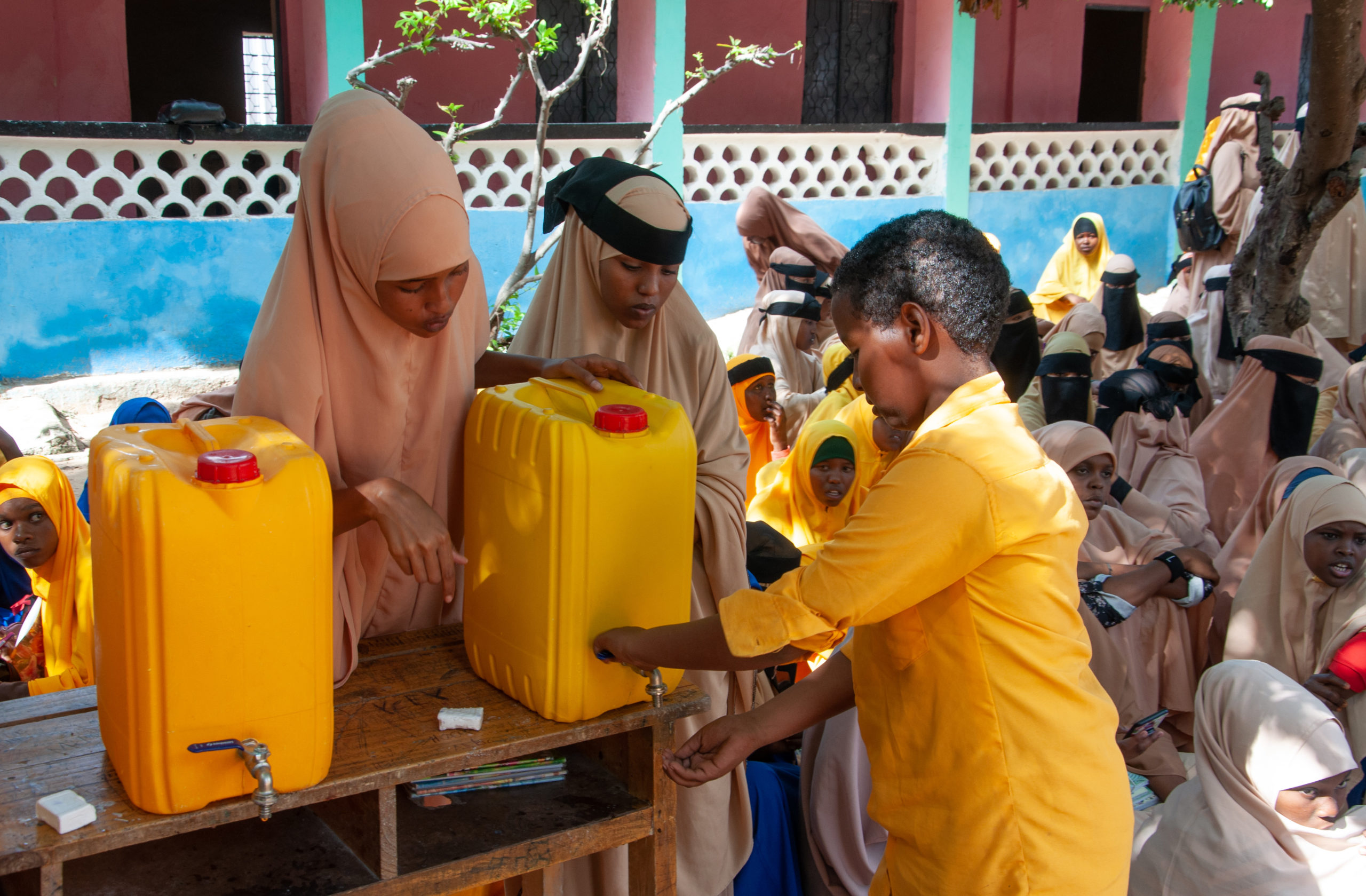2023/2024 – SOMALIA – HYGIENEback

The scarcity of drinkable water contributes to the incidence of acute watery diarrhoea (AWD), cholera and other diseases in Somalia. In response to this problem, we are conducting a project to support healthy hygiene practices in the Galgaduud and Banaadir regions of Somalia.
Within the framework of the project, we are training hygiene promoters, health workers and water committees to in order to communicate effectively with local communities. We are promoting hygiene principles such as regular hand washing with soap, proper menstrual hygiene and trying to eliminate harmful habits, including defecating in open spaces. In addition, we are training water committees in conducting water tests and improving water quality, and distributing reagents for water treatment. We are also providing menstrual hygiene kits for girls in schools.
In order to raise community awareness with regard to acute watery diarrhoea and cholera, we are developing and distributing information and education materials. We are also collaborating with local TV and radio stations to reach as many people as possible and convey important information on the prevention and control of these diseases. In addition, we are distributing brochures and awareness-raising materials on cholera to students and teachers in areas at risk of diarrheal diseases.
The project aims to support vulnerable groups such as internally displaced people, host communities, patients in health centres and students in malnutrition-affected regions. The main objective of the project is to promote health practices in communities by integrating social-behavioural change activities with water and sanitation initiatives. At the same time, we aim to increase the involvement of the community itself in improving sanitation.
In total, the project will reach up to 1.5 million people through direct and indirect activities.
Duration of the project: 1st May 2023 – 30th April 2024
Location: Galgaduud and Banaadir regions, Somalia
Donor: UNICEF



 A
A

